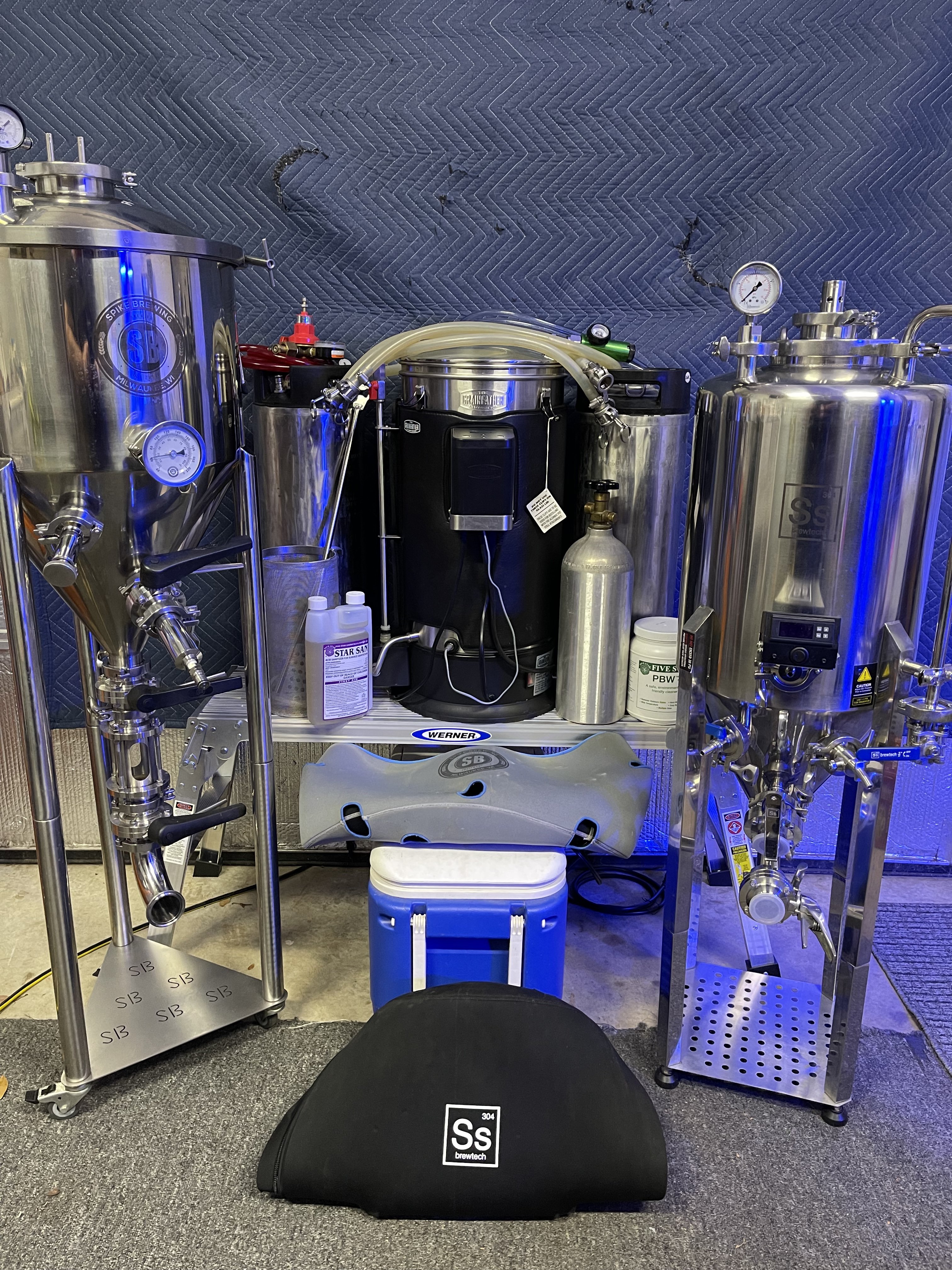So, about a week or so ago I decided I was going to give home brewing a shot… didn’t realize what I was getting in to! It all started with an ad I saw for the BeerMkr. I thought wow, that looks pretty easy and has some cool factor to it. Then I found out it only made a gallon at a time, and of course you have to buy their kits. So then I started researching other options.. big mistake! 
Here’s where I’m at. I’ve been gathering for several days now and need some advice on what else I’ll need to get my first batch through. I know there’s probably a lot more I‘ll need, but what can I get by with at this point? Here’s what I’ve got so far:
Brewing
Grainfather G30
Hop snake
Cam lock upgrade kit
Mash paddle
Fermenting (I have some decisions to make here)
SS Brewtech 14g unitank
Inline oxygenation kit
FTSS 2 heat/chill kit
Carb stone
Sight glass
Cam lock transfer lines
or
Spikes CF10
Heat/chill kit
Carb stone/PRV kit
Sight glass
Kegging
(2) 5g ball lock kegs
Co2 bottle w/regulator
Kegerator
I have a container of PBW for initial cleaning and a bottle of Star San to sanitize. Also have a lot of fittings/clamps for the unitank and CF10. My submersible pump will be here tomorrow to do a thorough cip on the fermenters.
I decided on a California Common for my first batch. Many years ago Anchor Steam was a favorite choice of mine, haven’t been able to find it for years though.. figured I’d give it a shot. I have (2) 5 gal grain kits for it.
Again, just looking for any advise here before I jump in feet first. I know there’ll be “oh $hit” moments, just trying to minimize as many as possible.
-David
Here’s where I’m at. I’ve been gathering for several days now and need some advice on what else I’ll need to get my first batch through. I know there’s probably a lot more I‘ll need, but what can I get by with at this point? Here’s what I’ve got so far:
Brewing
Grainfather G30
Hop snake
Cam lock upgrade kit
Mash paddle
Fermenting (I have some decisions to make here)
SS Brewtech 14g unitank
Inline oxygenation kit
FTSS 2 heat/chill kit
Carb stone
Sight glass
Cam lock transfer lines
or
Spikes CF10
Heat/chill kit
Carb stone/PRV kit
Sight glass
Kegging
(2) 5g ball lock kegs
Co2 bottle w/regulator
Kegerator
I have a container of PBW for initial cleaning and a bottle of Star San to sanitize. Also have a lot of fittings/clamps for the unitank and CF10. My submersible pump will be here tomorrow to do a thorough cip on the fermenters.
I decided on a California Common for my first batch. Many years ago Anchor Steam was a favorite choice of mine, haven’t been able to find it for years though.. figured I’d give it a shot. I have (2) 5 gal grain kits for it.
Again, just looking for any advise here before I jump in feet first. I know there’ll be “oh $hit” moments, just trying to minimize as many as possible.
-David




